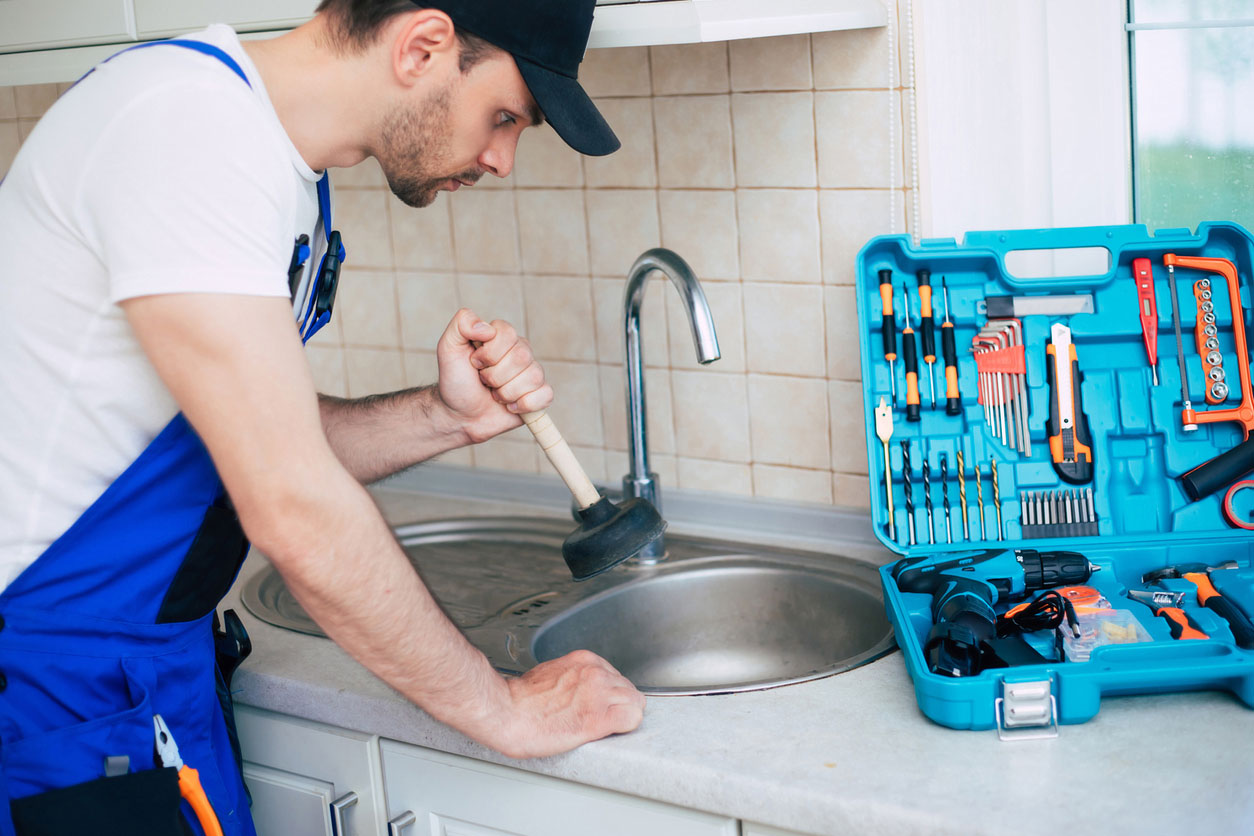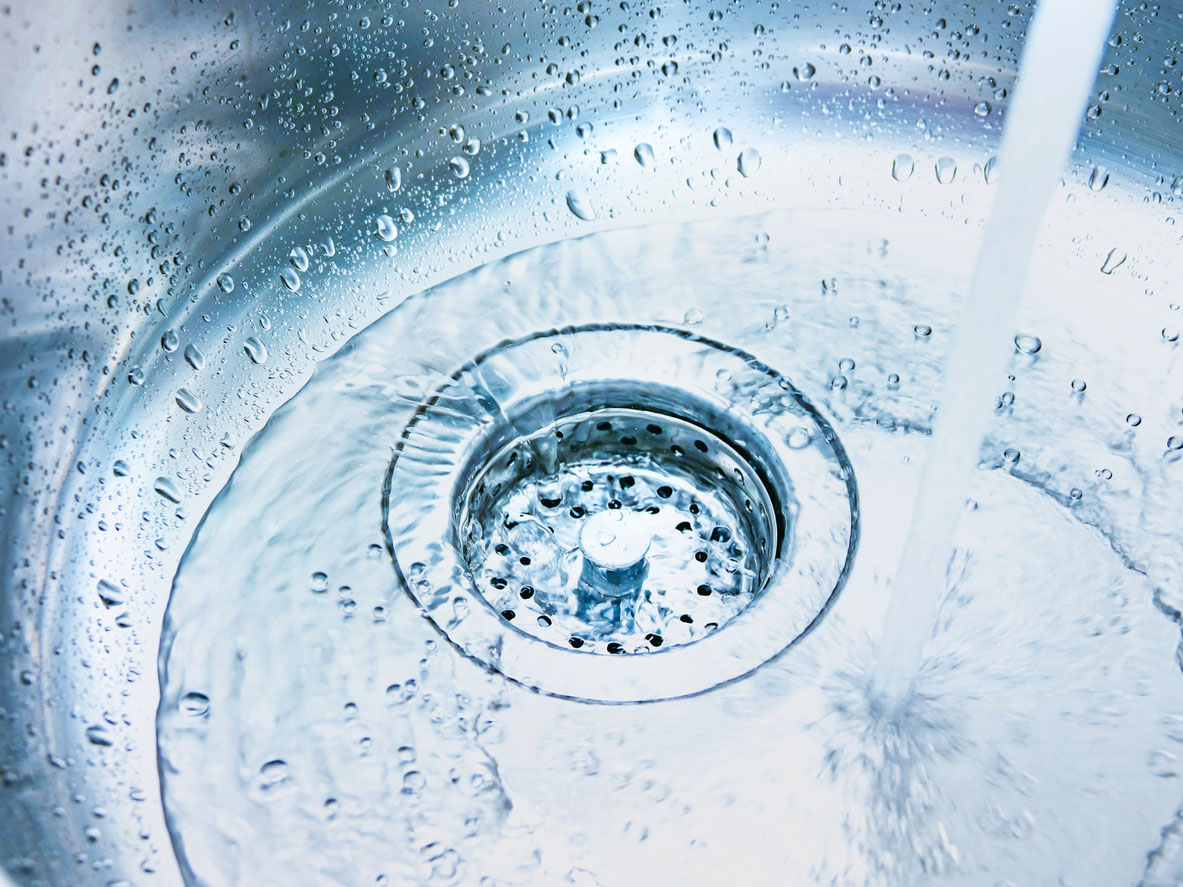Your drains are one of the most important parts of your plumbing system. They help to carry waste away from your home and keep your appliances functioning. Unfortunately, debris can sometimes build up and cause issues. If you do not want to deal with major plumbing problems, you need to take the time to get your drains cleaned occasionally.
➪ Unclog your drain
➪ Sewer and Drain Cleaning
➪ Cleaning Services nearby
➪ Blocked Drains
iStock.com/Eplisterra
How to Tell If You Need to Clean Your Drains
If it has been a while since your drains have been cleaned, it might be time to do it again. You will also need to clean your drains whenever you suspect they are clogged. Signs you might have blocked drains include:
- Drains that won’t drain
- Foul odors coming from drains
- Drains that are moving more slowly than usual
- Bubbles of air coming out of the drains
- Gurgles, squeaks, or any weird noises
Water backing up into your sink, tub, toilet, or shower - Discolored water standing in any of your plumbing fixtures
5 Tips for Easy Drain Cleaning
If you have a drain that is not working properly, there is no reason to stress. Follow these simple tips to unclog a drain quickly and effectively.
Identify the Location of the Clog
All your drain pipes are connected, so when one spot is clogged, water will often back up first in the pipes on the lowest level. You can try running water slowly in a few spots to find the clog, but it may be necessary to get a professional who can look at your drains with a camera.
Try Gentle DIY Methods First
When you have a clog, first try removing the clog manually. In many cases, you can just remove the stopper and pull out a bunch of hair wrapped around it. You can also try making a gentle DIY cleaner by mixing baking soda and vinegar in your drain, or you can use a plunger to try and force the clog out.
Don’t Keep Flushing a Clogged Toilet
One of the fastest ways to make a huge mess is by repeatedly flushing a clogged toilet. If you don’t want overflowing sewage all over your bathroom floor, proceed with caution. Pay close attention to how full the bowl is and avoid flushing if the water is already at the top of the bowl.
Use Enzymatic Drain Cleaners Instead of Acidic Ones
If you’re planning on using a chemical drain cleaner, go with an enzyme-based one. These are a little pricier, but they’re a lot gentler on your pipes. They are especially good for septic systems since they don’t kill off the natural bacteria that treat your wastewater.
Know When to Call a Professional
Certain types of blocks require professional help. Typically, you can try doing sink, tub, and shower drains yourself, but toilet drains require professional help. You’ll also need a professional if the clog is deep within your main drain line.
Related Topics (Ads):
➪ Unclog your drain
➪ Sewer and Drain Cleaning
➪ Cleaning Services nearby
➪ Blocked Drains

iStock.com/Povozniuk
Which Drain Cleaning Method Should You Choose?
- Drain snake: This is a long, flexible tool that goes down the pipe until it snags on the clog. You then pull the snake back out to yank the clog from the sink.
- Drain auger: A drain auger works similarly to a snake, but it uses a little more pressure. The tip of the auger pushes through the clog, breaking it into small pieces you can pull out.
- Plunger: The flexible rubber cup of a plunger fits over your drain. Then you push down on the plunger to force air and water through the pipe and move the clog.
- Chemical drain cleaner: These cleaners are a liquid you pour into the drain. They eat away at the clog until it flows away down the drain.
- Drain bladder: This method for cleaning your drains looks like a thin, narrow balloon attached to a metal gasket. It screws onto a house and uses water pressure to break up the clog.
- Hydro-jets: These high-tech devices force water through a hose nozzle at pressures of up to 35,000 psi.
Ultimately, different methods work best in different solutions. A drain snake or auger is typically the most reliable method for clogs made of hair or paper, but they won’t always do a good job of removing greasy clogs. The casual homeowner who does not do a lot of DIY might enjoy the convenience of a chemical drain cleaner. However, if your plumbing is old and fragile, drain cleaners can be too rough. meanwhile, if you have a clog deep within a pipe, hydro-jetting is one of the only effective methods.
➪ Unclog your drain
➪ Sewer and Drain Cleaning
➪ Cleaning Services nearby
➪ Blocked Drains
FAQ
If you have any other questions about sewer and drain cleaning, explore this list of frequently asked questions to get answers.
How does a drain cleaning bladder work?
A bladder uses high-pressure water to break up a clog. To use it, you connect one end to a standard hose and insert the other end into the sink. The bladder fills up with water and then shoots the water down the drain to clear away the clog.
How often should you clean drains?
Any time you notice the signs of a drain clog, it is important to act fast. Getting them cleaned quickly can prevent messy sewage backups from happening. Even if you do not have any clogs, it is a good idea to get your drains cleaned annually. This helps prevent any small bits of buildup from turning into bigger clogs.
Are chemical drain cleaners dangerous?
Chemical drain cleaners usually work by dissolving the grease, hair, and other organic matter that make up a clog. However, these cleaners keep dissolving organic material even when they are not in a drain. If any splashes on your skin or in your eyes, it can result in very bad chemical burns. This is why it is so important to use proper safety gear when working with chemical cleaners.
Is there a difference between a professional or a DIY sewer and drain cleaning?
Professional drain cleaners have access to better tools and materials. Professional cleaning also involves things like using a motorized drain snake to break up the clot or using a hydro-jetter to blast away buildup. With professional cleaning, you can ensure the clog is actually gone instead of just being pushed farther down your pipe.
How can you keep drain clogs from happening again?
If you want to avoid a lot of emergency cleanings, you just need to follow a few simple tips:
- Never pour grease or oil down a kitchen sink
- Use a filter to catch hair or food particles before they go down the drain
- Do not flush sanitary products, so-called “flushable” wipes, or anything else besides waste and toilet paper
- Avoid planting large trees near sewer lines
- Install a garbage disposal in your kitchen sink
- Never rinse down the drain any paint, grout, mortar, or other things that set into a solid substance
Reference section:
https://www.familyhandyman.com/article/what-to-know-about-drain-bladders/
https://www.thisoldhouse.com/plumbing/21164644/how-to-clear-any-clogged-drain
https://www.facilitiesnet.com/maintenanceoperations/article/Understanding-Types-of-Drain-Cleaning-Equipment–19016
https://www.landmarkhw.com/resources/plumbing/ask-a-plumber-the-best-way-to-clean-your-drains/2/6

